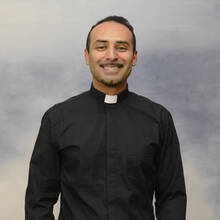The National Eucharistic Congress: A Matter for the Heart
The National Eucharistic Congress culminates its Eucharistic Revival with a five-day live session ending this weekend. The revival has built momentum during the past two years to encourage a nationwide pilgrimage that ends at the Lucas Oil Stadium in Indianapolis. It is the first such congress in 83 years for the United States. The theme for this movement is revival and its logic is clear: Revival is not something we do, it is God stirring up the hearts of his people.
People were coming and going in great numbers, and they had no opportunity even to eat. (Mk 6:31)
What part of your heart needs revival?
Where are the areas in your life that call out for renewal?
Who are the people who stir up compassion within you?
The Mass readings for the Sixteenth Sunday in Ordinary Time match the sentiment of the National Eucharistic Congress. The readings peel away to expose Jesus’ core. They reveal the compassion of the shepherd’s heart for the people of God who wander in pilgrimage for something more. “When he disembarked and saw the vast crowd, his heart was moved with pity for them, for they were like sheep without a shepherd” (Mk 6:34). The Eucharistic Congress presents a national plea for the people of God to allow their hearts to be stirred, while today’s passage reminds us that Jesus’ own heart was also moved when he saw the crowds. This is the first time in the Gospel of Mark where Jesus’ mission and identity are explicitly identified as those of the “shepherd.”
Perhaps Mark is thinking of the shepherd in Psalm 23, today’s responsorial psalm: “The Lord is my shepherd; there is nothing I lack” (Ps 23:1). The crowd before Jesus, however, seems to lack many things. Compared with the gathering at King Herod’s banquet—described in detail in the verses just before today’s passage—the gathering for Jesus is composed of desperate people. King Herod threw his own birthday banquet with an elite guest list, “his courtiers, his military officers, and the leading men of Galilee” (Mk 6:21). This banquet ends with the head of a prophet on a platter. It is the antithesis of Jesus’ gathering, where he is about to teach and feed the crowds who are desperate for food and drink, the kind that nourishes the soul as much as the body.
For the past three Sundays, the readings have been asking an implicit question: Who can lead this people? Jesus is rejected at Nazareth. He becomes the perfect model for his own disciples afterwards. Now, in this final buildup in the Gospel of Mark, we find a contrast to King Herod in Jesus the Shepherd of Galilee. Jesus tells the apostles, “Come away by yourselves to a deserted place and rest a while” (Mk 6:31). Before feeding the hungry crowd, as “they had no opportunity even to eat,” he teaches them many things (Mk 6:31-34). The signs of the shepherd become clear: He is the one with compassion, the one who teaches and the one who feeds.
Today’s celebration for the National Eucharistic Congress would do well to maintain a close connection between the sentiment of revival of eucharistic devotion and the movement of Jesus’ own heart. Jesus heals, teaches and feeds because he is moved by the circumstances of the desperate people around him.
America is at the 10th annual National Eucharistic Congress in Indianapolis. Find additional essays and reflections here.







